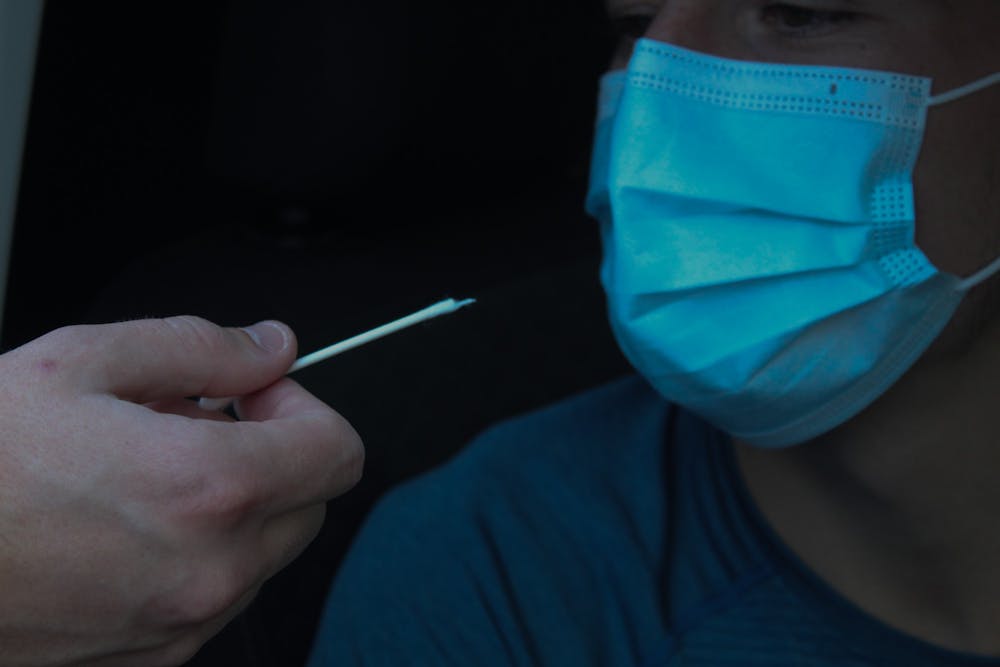As UNC plans to require reentry COVID-19 testing for students in the spring term, some students feel the changes are long overdue.
The program, discussed at a Board of Trustees meeting last month, is set to open three COVID-19 testing locations on campus starting next semester. Students will be able to self-administer a noninvasive nose swab test, a shift from UNC’s use of saliva testing in the fall.
Chancellor Kevin Guskiewicz announced the Carolina Together testing program in a campuswide message on Nov. 23.
The three testing sites will be located at the CURRENT ArtSpace on Franklin Street, the Student Union and Rams Head Recreation Center.
Undergraduate students who are living on campus or in Chapel Hill or Carrboro or are taking in-person classes will be required to test once prior to returning to campus. Graduate students, faculty and staff are not required to test prior to arrival.
How often students will need to test during the spring varies:
- Students having in-person classes, living in residence halls, living in the area with 10 or more people or staying in Granville Towers must test twice a week.
- Students taking remote classes and living off campus in Chapel Hill or Carrboro must test once a week.
- Graduate, professional and post-doctoral students who teach, take classes or do lab work on campus must test up to once a week, with an exception for graduate students in programs where daily symptoms are monitored.
Staff and faculty who are accessing campus, as well as remote graduate students, are allowed to voluntarily test once a week. Staff and faculty members working remotely are not included in the program.
Results will be available within 48 hours from a lab being built in the Genome Sciences Building, Dr. Amir Barzin, medical director at the Family Medicine Center in Chapel Hill, said at the BOT meeting.




